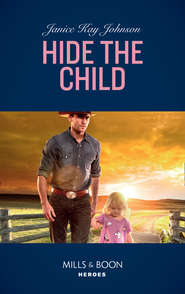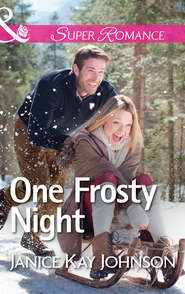По всем вопросам обращайтесь на: info@litportal.ru
(©) 2003-2025.
✖
Christmas Presents and Past
Автор
Год написания книги
2018
Настройки чтения
Размер шрифта
Высота строк
Поля
“What do you mean?” he asked.
“I brought something for you.” She held out her hand.
Puzzled, he took what she handed him. It was stiff, but cloth. A patch? Headlights coming the other way briefly illuminated it. It was a peace symbol—white—embroidered against a blue background.
She touched the front of his fatigue jacket. “I’ll sew it on there for you. Now you can speak out.”
He wanted to drop the patch, or thrust it back at her. Instead, he just sat there. His voice sounded a little strange. “My Christmas present?”
“Well…” She chuckled, a musical sound he’d dreamed about. “I have others for you. But…yes. A first present.”
Something he didn’t want. Didn’t understand. A symbol that repudiated everything for which the men around him had died.
“I’m so glad you’re home for Christmas,” she murmured.
Chapter 4
The Will O’Keefe who left for Vietnam was not the same Will who had come home that foggy night before Christmas.
It had been naive, Dinah realized, to think he would be. Anyway, she had expected change. Just…not so much.
Physically, he had gone from being a boy to being a man, growing another inch—his mother insisted on measuring him—and adding muscle. The planes of his face had become harder, as if a sculptor had decided it needed more definition. Ironically, his hair was longer now than when he had been inducted. Not long enough to be tied back, but shaggy enough to make him appear untamed. The smile, revealing his essential sweetness, came rarely.
Oh, and he’d started to smoke over there. He was rarely without a lit cigarette dangling from his lips or between his fingers. Dinah was trying to become accustomed to the taste, but failing. Once she suggested he think about quitting, now that he was home. He just looked at her, tamped out the one he’d had between his lips, deliberately pulled out his packet and lit another, his insolent gaze on her the entire time. It was an uncomfortable moment.
One of many. The laid-back guy she’d known was laid-back no more. Sometimes he was distant; she would realize, in the midst of telling him something, that he wasn’t listening. He’d be slumped on the sofa or her bed in the dorm, his gaze fixed on a wall, and he was a million miles away. No. Half a world away. In Southeast Asia.
He brooded, and his sense of humor had become more cutting. He had developed a volatile temper. Once, when they were in the city and a car backfired, he hit the sidewalk facedown while she stood and stared. Then, he jumped to his feet and ran after the car yelling obscenities, giving the driver the finger. When he came back to her, he was still simmering, as if that poor old guy behind the wheel had been deliberately trying to set Will off.
He was sexier, of course. Christina, with whom Dinah was rooming at S.F. State, said after the first time she saw Will in January, “Wow. I never got what you saw in him, but now I do. He has that Steve McQueen thing. You just know he could be dangerous.”
Dinah did sometimes find herself reacting physically with a barely contained wow. But mostly she missed the sweet guy who had been so attuned to her.
Then, of course, she immediately felt guilty. Was that why she’d fallen for Will? Because he was totally into her? Was their whole relationship about her? Well, if it had been, she resolved, that was going to change. He needed her now. She could tell from the way he made love to her, with intensity and desperation, and in the way he turned to her at night after one of his nightmares, clutching her as if she was all that stood between him and his monsters.
Of course the old Will was still there. Once in a while, he opened up and talked to her. Really talked. Never about the awful stuff she knew had happened to him, but as if he were tentatively propping open a door. She had incense burning in her dorm room once, and he told her how you could smell it in the villages over there, especially at night. He talked about the M-16 rifle and what a piece of crap it was, jamming incessantly and often at the worst possible times. He got off one time on the dust, just a red cloud that covered everything, got into weapons, made clothes that had been washed and hung out dirty before they dried. And the bugs. One guy was chopping bamboo, and red ants fell on him, dropping inside his shirt, stinging while he was running around screaming. Some of the stories were funny, some so alien to her experiences that it helped her understand why he was having trouble just walking back into his old life.
When she asked, he’d talk some about patrolling or guarding a bridge during monsoon rains with convoy after convoy rumbling over it, but he never talked about his injuries or about whether he’d killed anyone.
Once, she pushed a little too hard, and he looked at her and said, “You trying to find out if I bayoneted any babies?” and then turned and walked out. She didn’t see him that time for three days.
She’d been excited about introducing him to her new friends, but he seemed uncomfortable with them, invariably staying on the edge of the crowd.
Tonight he came by her dorm room unexpectedly. It was April, and a bunch of people were over to talk about the demonstration they were going to the next day in support of a huge one planned in Washington. They sat cross-legged on her floor and on the beds, while others squeezed around the door and spilled into the hall. When he walked in, there was this kind of silence. He had on his fatigue jacket, as he almost always did these days. She couldn’t quite figure out why he wanted to label himself a vet, but she could tell that’s what he was doing.
“Hey, man, you coming with us tomorrow?” Ronnie Epstein asked. “Having veterans against the war front and center, that’s far out. It speaks to people, you know?”
Will hadn’t let her sew the peace symbol to his jacket. The only patches were the ones that identified his unit.
He ignored Ronnie and looked at her. “Tomorrow?”
Dinah told him about the demonstration. “You’ve been saying you might come to one.”
His lip curled. “No, you’ve been saying I might.” Just like that, he walked out, as had become his habit when he didn’t want to talk about something, leaving an uncomfortable silence behind him.
This time, Dinah got mad. Seeing the look on her face, people got out of her way and she stormed after him. She caught up with him in the parking lot, where he was opening the door to the beat-up pickup truck he’d bought after returning, the one with a driver’s-side window that wouldn’t roll up.
“What was that about? Were you trying to embarrass me in front of my friends?”
“You shouldn’t put me on the spot in front of other people.”
“You’re against the war!”
“Yeah? So?”
“Then why won’t you speak out?” she demanded.
“What am I going to say?” He paraphrased a popular chant. “‘Hell, no, I won’t go?’ It’s too goddamn late. I went.”
“If you’re ashamed that you went, how you come you wear that everywhere?” She gestured at the fatigue jacket.
“Because I’m not ashamed. I’m damn well not going to sneak back into society like I should be.” His eyes burned into hers.
Her anger faded, leaving bewilderment. “So wear it,” she implored. “Use your service.”
“To undercut the guys who are still over there? Maybe I should have just slipped over to the Vietcong side and told them where to set up an ambush!”
Her mouth fell open. “We’re trying to bring the American soldiers home so they won’t be in danger!”
“Do you know every soldier there hates hippie demonstrators?” His voice raked her. “We’re over there dying, and the NVA is watching TV, seeing half a million Americans marching on the Capitol and knowing they can just keep killing us, because they’re gonna win. Yeah, and then you know what?” He thrust his face out so it was inches from hers. “Then we get home, and those same hippie demonstrators who are trying to save our lives spit on us and call us baby killers!”
Her heart almost stopped as she saw the fury and bitterness in his blue eyes.
“I didn’t know….” she whispered. “Has anybody done that to you?”
His expression closed. Just wham. Fort Knox locking up for the night. “No. I was speaking metaphorically.”
“Do you feel like people look down on you?” Dinah asked.
His laugh had a harsh edge. “Go talk to your friends. Their heroes are the guys who run for Canada. It’s sure as hell not guys like me who were too damn stupid to get a deferment.”
Struggling with shock, she protested automatically, “You’re not stupid….”
“That’s not what you said when you found out I hadn’t applied to college.”
“I was scared.”
He shrugged, suddenly indifferent. “Fact is, I was stupid. I’m just a grunt. But I have some dignity. You’re not putting me on display, front and center,” he mocked, “so I can tell the world I done wrong and now I’m repenting. Just shove it, okay?”











